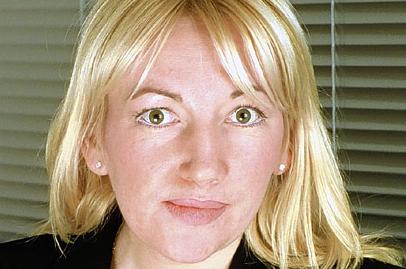
The CEO of Britain’s biggest newspaper publisher nailed how peers are pondering a post-web future with familiar old business rules. Delivering a Media Society lecture in London on Monday, Trinity Mirror‘s Sly Bailey welcomed “The Three Ps” of portability, personalisation and payment mechanisms, which she said “will allow us to build a sustainable business that is not solely reliant on advertising”.
As though channeling Wired design director Scott Dadich, who recently lamented the “clunky” “design experiment” that is the worldwide web, Bailey looked forward to platforms like tablets and Apple’s desktop app store, “without the design limitations of the web“.
“If you can develop a paid-for app business model, what does your free-to-air website then become? Perhaps it becomes just a teaser, with consumers driven to the paid app; the content is still free but highly limited.”
Bailey is bearish and upfront on the prospect for online consumer news fees: “Just because our journalism is expensive to produce, it doesn’t necessarily follow that someone will pay for it. They are always one click away from any number of sites.
“I just cant see why a consumer would pay for something where they can get the same thing at as high a quality for free. Online news has become ubiquitous, completely commoditised, without value to anyone but us.”
Over the last two years, Bailey has told investment analysts much of the news biz’s current challenge has been the perennial “cyclical” phenomenon of an advertising downturn, which re-entered the industry’s orbit during the recession.
Bailey reiterated this observation Monday night, but gave a more rounded, frank and urgent status report for the industry…
“We are at a crucial juncture now. For newspapers to have a sustainable future, the economics have to change. We have to become more efficient at producing them in order to free up more cash to invest in their future.
“The multiplicity of news products online and the very nature of the online environment has seen the willingness of consumers to pay for content dissipate almost completely.
“This is not desirable, but it’s where we are. The media industry’s old law of supply and demand has yet to adjust to a world where previously captive consumers now choose, when where and how to get their media.”
Bailey lamented the decisions of most publishers, during the late 90s, to publish online for free: “Lots of mistakes were made 20 years ago, at the dawn of the web. We can’t make the same mistakes we made 20 years ago – poorly thought-through assumptions based on what we thought was good for us as publishers, with virtually no consumer insight in to who would pay and for what.
“We’ve got to know what our consumers want, rather than what we want them to want. Frankly, we wont be rushed in to doing that. Our intention is not to be first but to get it right.
“The industry was relentlessly chasing unique users in the false hope that revenue would follow. We were flag-waving our way out of business – unique users do not pay the wages. It doesn’t take a genius to lose millions of pounds buying up a masive audience.”
Bailey used her lecture to declare News Corp.’s proposed bid to buy its remaining 61 percent of BSkyB (NYSE: BSY) “a very real threat to media plurality in the UK”, warning: “It would increase the likelihood of the market being distorted through bundling of products and services – newspapers and tablet apps with a Sky subscription, for instance.” She will be making a submission to Ofcom’s consultation on the issues.
Whilst noting observers’ “pessimism” about the industry’s state, Bailey remains upbeat about the prospects for innovation, especially on tablets, though other new services will follow. The zeal many publishers are showing toward these new platforms belies the truth that – as they constrain the open web in to an editionalised, territory-dependent content package, potentially at a price and with a familiar form-factor – tablets, to many publishers, are now the natural digital realisation of a newspaper. As Bailey said, “they may not be in print anymore, they’re an app – but there still like a newspaper“.
Trinity Mirror (LSE: TNI) this year span soccer and celebrity coverage out in to two independent off-shoots of its flagship Mirror.co.uk in a search for loyalty through disaggregation, with more sections likely to follow.
Whilst some press ahead with “integrated” multimedia newsrooms – as Trinity Mirror’s regionals have been doing – for others, the newspaper’s future has never looked more newspapery. Bailey said Trinity Mirror’s recent national digital executive-level digital reshuffle was about creating a digital division “separate” from print, allowing each to focus on their respective areas.
“It was just too difficult to ask the editor of the Daily Mirror, who has six newspapers to get out every week, (to run the website as well),” Bailey said.